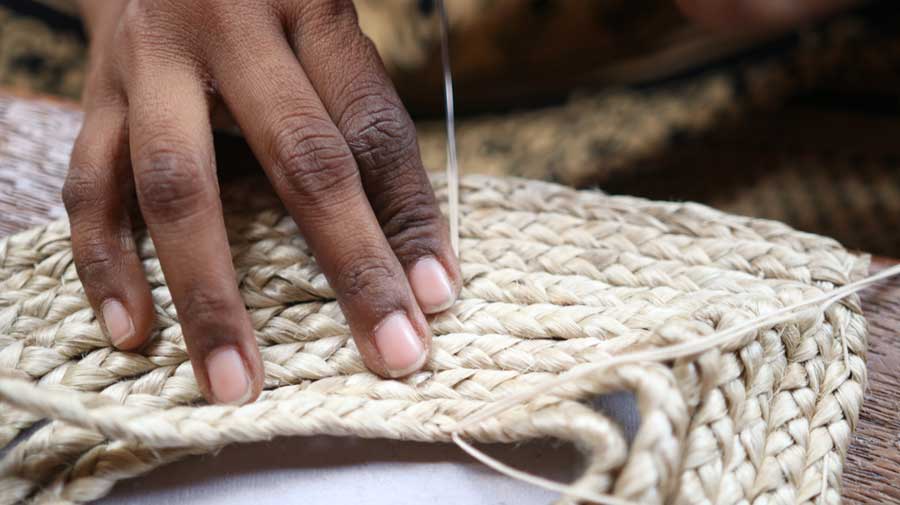Trade unions and jute mill owners alike have expressed concerns over the Bengal government’s decision to allow operations in jute mills with 30 per cent of the total workforce in three shifts.
The cap on workers has been put to avoid crowding in factories to help prevent the spread of Covid-19.
There are around 2.5 lakh registered jute mill workers in Bengal.
Both trade unions and jute mill owners in their respective correspondences with the government have said that this decision would adversely affect the economic health of the workers as well as the industry as a whole.
The restriction on the attendance of jute mill workers was first imposed through a government notification on May 7 and has been extended till May 30 on Saturday.
On an average, a jute mill labourer works for 26 days a month.
According to trade union activists, if a mill is allowed to run with 30 per cent of its workforce during each shift, a worker will lose 16 working days.
“We had already written to the government about this…If a worker gets work for 10 days, he will be paid for 10 days…Either the government pays the full month’s wage to the workers out of its own pocket, or it must ask the jute mill owners to do so,” said Anadi Sahoo, state secretary of the CPM’s trade union Citu.
At least 21 jute workers’ unions have written to chief minister Mamata Banerjee, other stakeholders in her government and the jute commissioner to take necessary steps in this regard.
The letter was written on May 13, yet the restriction on workforce at jute mills remains unaltered in the notification on the new curbs that the government has issued on Saturday.
“The restriction has been extended, but there is no answer to our demands,” Sahoo said.
The Indian Jute Mills Association (IJMA), which represents mill owners, had also written to Becharam Manna, the labour minister, on May 12 to revise the norms and sought an appointment from him to discuss the related issues. However, there has been no positive response to the letter yet.
“It is very difficult to run jute mills with such a scanty workforce. We will make our submission again to the government (to reconsider the 30 per cent cap on workers),” said Raghavendra Gupta, the chairman of IJMA.
Others have also expressed their disappointment that this restriction has remained unaltered in the state government’s Saturday notification.
Even before the curb was enforced, the jute industry was far from healthy. At least eight jute mills have issued suspension of work notice in the last few months over unavailability of raw jute.











